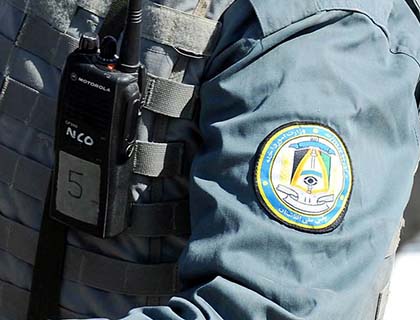Kabul residents know better than to frolic about the streets and cafes until late at night and then hop into a random cab to go home. It’s simply too dangerous for that. But the danger is not because of threats specific to the war, such as the Taliban, Al Qaeda or the warlords. The danger has nothing to do with that.
The caution stems from hazards specific to any unstable, post-conflict country that’s struggling with poverty and the rule of law. The popular fear is that taxi drivers might turn out to be kidnappers or criminals preying on unsuspecting passengers late at night. (As a parallel, taxis that run at night are also afraid of the random passenger who might have criminal intentions.)
But your humble blogger has been unwisely and habitually flouting the rules of caution: He’s been hopping on taxis at 9, 10, 11 p.m. or even later (No, he’s never drunk). Most taxi drivers have been incredibly nice people and good conversationalists. They’re out there to make a living, not kidnap people.
One recent night, I approached a taxi, haggled with the driver to settle the fare and hopped on. He turned up the car’s heater and we settled into a warm conversation. Along the way, we spotted a group of four young men standing on the street hailing our cab. The driver was slowing to pick them up when I sounded a note of alarm.
Me: Be careful, Ustad, a group of young people like that can be trouble this late at night.
Him: No, don’t worry. I’m in the police and on patrol right now.
He might have spotted the incredulous look on my face despite the darkness. He tried to reassure me and proceeded to dig out his radio phone from his jacket pocket and placed it on the dashboard, next to his police hat, which I then noticed. I also noticed his uniform under his thick jacket. He produced his police ID for my inspection. His name on the card was, simply, Aimal.
Sergeant Aimal said he had spent four years in the police academy and boasted that he was one of the most qualified cops in town. He repeated that he’s on patrol as we speak, this time adding somewhat apologetically that it is hard even for qualified cops to make ends meet because of the low salaries.
Sergeant Aimal was working as a taxi driver while on duty as a policeman. He wasn’t patrolling in the police truck but in a cab, not chasing a particular route but going where the passenger was headed.
I asked if he owned the car (plenty of taxi drivers who don’t have their own vehicles pay a portion of their daily earnings as “rent” to vehicle owners). Sergeant Aimal tried to dodge the question by saying something about his brother’s Corolla.
The car clearly wasn’t his. But could it be some poor taxi driver’s car held at the police station for an investigation? Was Sergeant Aimal trying to earn extra money while on duty by spiriting away a car confiscated for criminal investigation?
I didn’t press him on these questions, of course, but I knew the common complaint about low wages for most government employees.
President Karzai has said several times that foreigners are to be blamed for corruption in Afghanistan. But could it be that his government is incentivizing widespread corruption by offering pitifully low wages to its employees? Some foreign observers point out that corruption is endemic in Afghanistan because the country is awash in foreign aid. But would Sergeant Aimal skip patrol, steal a car and drive people around town at midnight if he were paid adequately? The international community pledged tens of billions of dollars in continued aid for the decade after 2014, with particular emphasis on the security forces. Is that an effective strategy when the ministries of defense and interior (which oversees the police) fail to implement most of their budgets while their soldiers are forced to get into bizarre financial arrangements to make ends meet?
There are other ministries that regularly fail to execute enormous chunks of their annual budgets because of a lack of capacity, inferior management, security concerns, bad planning and other systemic inefficiencies.
A recent visit to the ministry of education, which regularly fails to execute its budget, illustrated the problems perfectly. The deputy minister said they had recently implemented pay reforms that resulted in a raise for everyone. But the deputy minister’s assistant later told me that some of the clerks receive as low as AFN 6,000 ($120) a month. That’s an impossible wage to live on, especially if it has to feed an average Afghan family with five kids. Clerks have the option to work over-time to boost their income to AFN 8,000, but most clerks supposedly working overtime are not even at work. They arrange for someone else to clock them in, a favor for which the accomplice might sometimes get a little something.
Hundreds of millions of dollars go unspent each year, yet hundreds of millions of dollars keep flowing into the government coffers as aid, while tens of thousands of government employees are forced to become corrupt.
But whereas some of the corruption by foreigners and domestic fat cats is for greed, the corruption pervading the government ranks is often for survival. This corruption is systemic and therefore largely avoidable. But as long as we keep pointing fingers at foreigners or attribute corruption to too much aid, we’ll either evade making real policy changes, or we’ll make the wrong ones.
In either case things won’t change for the likes of Sergeant Aimal.

